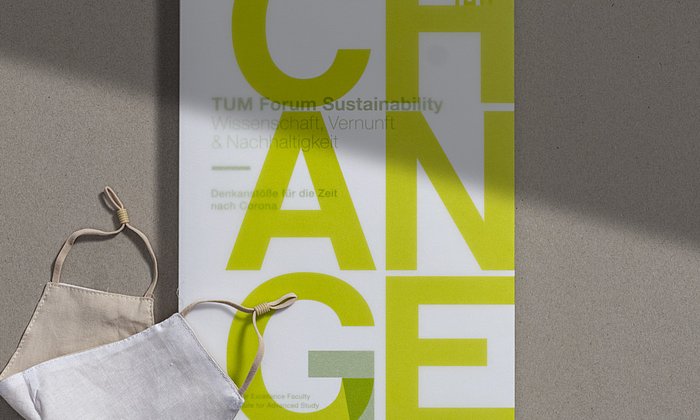50,000 political decisions from 195 countries open to analysis
Largest database on Covid-19 measures available online

How strict do policies need to be before a lockdown produces a real impact? At what point have countries with low Covid-19 case numbers made which decisions? Are the pandemic policies of centralized states more effective than those of federated states? To analyze where and how which government measures to fight the pandemic have proven effective, it is indispensable to assemble large volumes of reliable information – because every country and in many cases even individual districts and municipalities have made different decisions.
An international research network coordinated by the Chair of International Relations at the Bavarian School for Public Policy (HfP) at TUM has assembled the world’s largest database on political measures taken during the pandemic. CoronaNet now contains information on more than 50,000 decisions made by governments in 195 countries in response to the spread of the corona virus and is being continually updated by more than 500 researchers and students.
It is the most comprehensive and granular resource of its kind worldwide. The material covers
- individual measures in 18 categories, for example social distancing, restrictions in classrooms and investments in healthcare
- the timing and duration of measures
- whether decisions are made on the national, regional or municipal level
- to whom measures apply, e.g. whether travel restrictions apply to locals or to foreign residents
- the territory for which measures are valid, e.g. the entire country or only individual regions
- whether measures have the status of mandatory requirements or recommended guidelines.
Visualizations of timelines
All of the data are publicly available at www.coronanet-project.org and can be filtered by various categories. This permits enormously comprehensive and highly granular analysis of the data, for example to compare lockdown restrictions in South Korea and Singapore or whether Covid testing measures in California were ordered by the state or federal government. A dashboard enables users to visualize timelines for the decisions being studied. In addition, the research group has produced numerous policy summaries on individual countries.
The data can also be exported and, for users with limited experience with statistics software, CoronaNet offers a learning platform. “CoronaNet is a genuine open science project,” says project leader Luca Messerschmidt of the Chair of International Relations at TUM. “Amid the enormous uncertainty, our goal is to move at maximum speed to create as many resources as we can for the most valuable analysis possible,” adds Dr. Cindy Cheng, the second project leader.
Initial studies show differences between countries
The database is already being accessed by policy makers, researchers and media around the world, in particular to correlate the policy measures with Covid-19 case numbers to evaluate their effectiveness. Members of the CoronaNet group also used the data in their own research. For example, the scientists compared pandemic policies in centralized states and countries with a federal structure. Their results showed that not all federal states have had decision making powers comparable to those of Germany’s federal states with regard to pandemic measures. In Switzerland, for example, these powers have been centralized from the cantons up to the federal government.
In another study, the researchers confirmed the widespread conjecture that Covid measures that simultaneously serve to suppress criticism are more common in authoritarian states. In particular, governments in such countries are more likely to enact lockdowns and curfews. They have also done so at an earlier stage in the pandemic and kept those regulations in place for longer periods. (These two studies are currently undergoing the scientific peer review process and are available as preprints.)
Joining forces with other projects
The team has set the goal of a five-day lag between the collection of new data on political decisions on Covid-19 and database coding. Other research groups are providing additional data. CoronaNet is also taking part in the major project PERISCOPE, launched in November, in which 32 research institutes are investigating the social, political and economic effects of the pandemic in Europe.
“The pandemic is constantly posing new challenges for governments all over the world,” says Prof. Tim Büthe, the holder of the Chair of International Relations and coordinator of the TUM PERISCOPE projects. “That makes it even more important to provide input to shape policies so that decisions can be made on the basis of solid scientific evidence. This requires large quantities of high-quality data. Consequently, one cannot over-emphasize the value of the achievements and commitments, especially of the doctoral candidates and students, in building this database so quickly.”
Cheng, Cindy, Joan Barceló, Allison Hartnett, Robert Kubinec, and Luca Messerschmidt. 2020. COVID-19 Government Response Event Dataset (CoronaNet v1.0). Nature Human Behaviour (2020). DOI:10.1038/s41562-020-0909-7
Büthe, Tim and Barceló, Joan and Cheng, Cindy and Ganga, Paula and Messerschmidt, Luca and Hartnett, Allison Spencer and Kubinec, Robert. Patterns of Policy Responses to the COVID-19 Pandemic in Federal vs. Unitary European Democracies (September 7, 2020). DOI:10.2139/ssrn.3692035
Barceló, Joan, Tiril H. Rahn, Cindy Cheng, Robert Kubinec, and Luca Messerschmidt. Suppression and Timing: Using COVID-19 Policies Against Political Dissidents? (November 12, 2020). DOI:10.31235/osf.io/yuqw2
- CoronaNet: www.coronanet-project.org
- The core group of the CoronaNet project is made up of researchers at the Bavarian School of Public Policy at TUM and the TUM School of Management, New York University Abu Dhabi, Universidade de Brasília, the University of Southern California, Miami University and Nazarbayev University. The project is funded by the EU Horizon 2020 program and the Leibniz Research Alliance "Crises in a Globalised World” / Peace Research Institute Frankfurt (PRIF).
- Report “Behind CoronaNet: How we built our dataset”
- PERISCOPE: Over the next three years, 32 partner institutions from 15 European countries will study the social, political and economic effects of the pandemic in the project “PERISCOPE – Pan-European response to the effects of COVID-19 and future epidemics and pandemics”, with 10 million euros in funding from the EU. In addition to the CoronaNet, the HfP and TUM are taking part with another project: Janina Steinert, Professor for Global Health, and Tim Büthe, Professor for International Relations, are studying how members of the public are reacting to the pandemic risks. For example, they are assessing the willingness to install warning apps on smartphones or to receive vaccinations as well as the level of trust in the healthcare system.
Technical University of Munich
Corporate Communications Center
- Klaus Becker
- klaus.becker@tum.de
- presse@tum.de
- Teamwebsite
Contacts to this article:
Luca Messerschmidt, MPhil
Technical University of Munich (TUM) / Bavarian School of Public Policy (HfP)
Chair of International Relations
Tel.: +49 89 907793 107
luca.messerschmidt@hfp.tum.de


